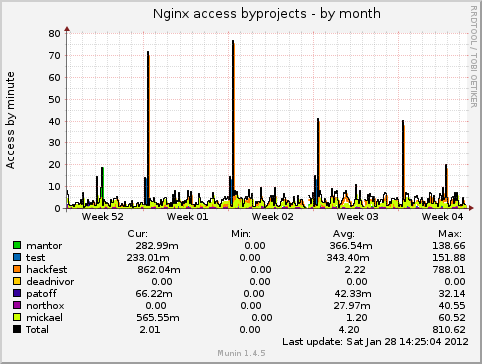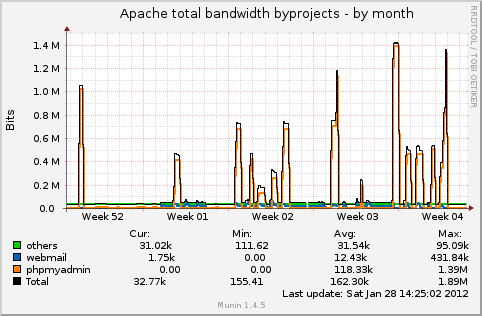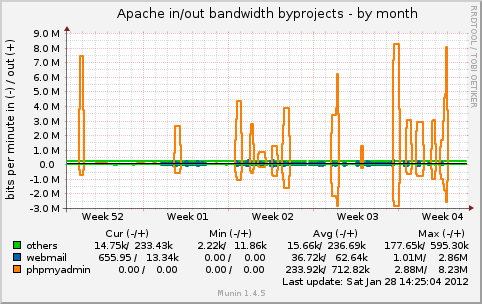2.2 KiB
The 'byprojects' family
Those plugins are used to monitor different projects or vhost (i.e. either different log files or using regular expression as filters) on the same web server.
munin_byprojects_access
Count the number of hits per projects/vhost.

munin_byprojects_bandwidth
Count the total bandwidth used by each projects/vhost. Logtail is required.

munin_byprojects_inout_bandwidth
Counts the in/out bandwidth used by each projects/vhost. Logtail is required.

Installation
The setup is pretty straight forward. First you need to configure the plugin:
In your munin plugin configuration file (for example, a new dedicated /etc/munin/plugin-conf.d/nginx_byprojects), configure the plugins :
[byprojects_*]
env.logtail /usr/local/bin/logtail
Multiple logs can be used for the same project/vhost and a regular expression (regex) can be used as a filter. Each log is defined in a dedicated environment variable, named env.site.[siteName]. The value is JSON formatted.
env.site.prod [{"path":"/home/prod/log/access.log"}]
env.site.dev [{"path":"/var/log/httpd/ssl-dev-access.log"}, {"path":"/home/dev/log/access*.log"}]
env.site.test [{"path":"/var/log/access.log","regex":"\"[A-Z]+ /test/"}, {"path":"/home/test/log/access.log"}]
In the previous example the prod project graph will be using everything in /home/prod/log/access.log. The test project will be using eveything in /home/test/log/access.log and stuff that match '"[A-Z] /test/' in /var/log/httpd/access.log (e.g. "GET /test/).
Then link the file just as any other plugins.
ln -s /usr/local/sbin/<plugin> /usr/local/etc/munin/plugins/<plugin>
And restart the munin-node service.
License
MIT